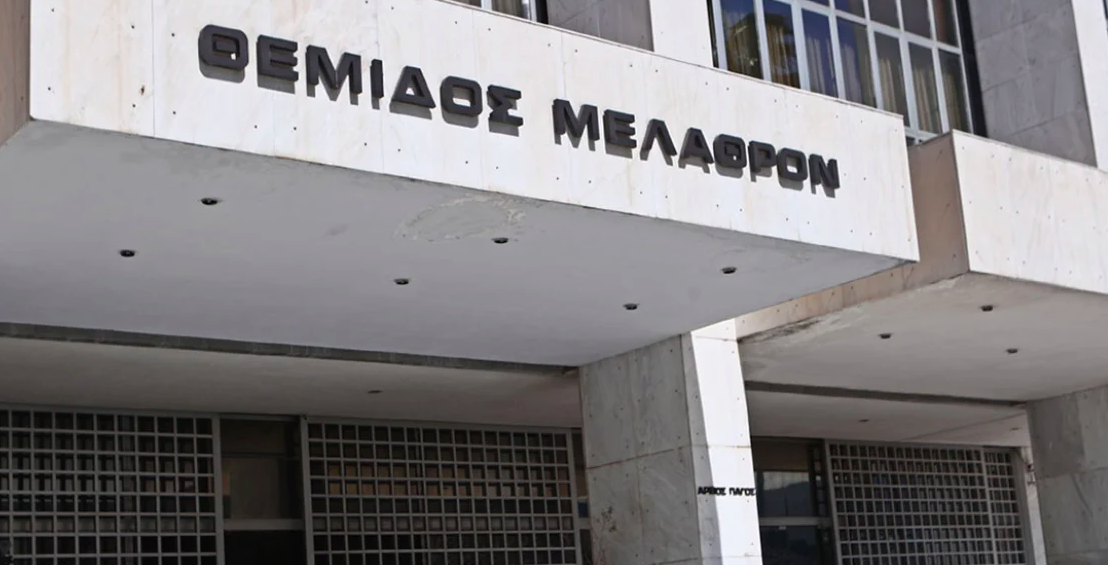Supreme Court Report on Wiretapping: Three Main Findings
The investigation by the Supreme Court into the wiretapping case has led to three main conclusions. After a thorough investigation lasting almost two years, the Supreme Court Prosecutor Georgia Adeilini announced the findings today. According to the report, the key points of the investigation are:
- No Connection Between Predator and State Services: There is no link between the Predator spyware and state agencies (EYP, DAEAEV, ELAS).
- Legality of EYP Surveillance: The surveillance conducted by the EYP was entirely legal.
- Trial for Private Company Officials: Four individuals responsible for private companies are to be prosecuted.
The Supreme Court Prosecutor Georgia Adeilini detailed that the investigation unequivocally concluded that there was no involvement with the Predator spyware or any similar software used by state services, including the National Intelligence Service (EYP), the Anti-Terrorist Unit (DAEEV), or the Hellenic Police (ELAS), or any state officials.
In contrast, there were “sufficient indications” at this stage to pursue criminal charges against certain (i.e., four) legitimate representatives and actual owners of companies for criminal acts, such as violating the confidentiality of telephone communications, which are classified as misdemeanors. The statement also mentions that all proposed witnesses, service chiefs, state officials, and investigations by three independent authorities were considered: the Personal Data Protection Authority (APDPC), the Authority for Communication Privacy (ADAEE), and the National Transparency Authority (EAD). These authorities conducted investigations and on-site inspections of public entities, including the Ministry of Citizen Protection (ELAS), the National Intelligence Service (EYP), as well as companies, and submitted their reports and findings.
Private individuals will face trial to determine the validity of the charges against them.
The specific details of the Supreme Court Prosecutor’s announcement are as follows:
- Completion of Preliminary Examination: The preliminary investigation into the wiretapping case was completed today, after approximately two years in total, and nine months since the enhancement of the investigation, with its assignment personally by the Supreme Court Prosecutor to Deputy Supreme Court Prosecutor Achilleas Zisis due to the major significance of the case and to prevent the risk of statute limitations on the investigated acts. The time required was deemed absolutely necessary given the unusual scope of the investigation and the in-depth exploration of every aspect of the case.
- Examination of Witnesses: Among those examined were almost all the witnesses proposed by the complainants, including politicians, journalists, mobile phone company representatives, EYP members over the past decade, ADAEE and EAD members, senior police officers, and others, totaling more than forty witnesses.
- Independent Authority Involvement: Three Independent Authorities were involved: the APDPC, ADAEE, and EAD, which conducted investigations and on-site inspections of public entities, including the Ministry of Citizen Protection (ELAS), the National Intelligence Service (EYP), and companies, and submitted their reports and findings.
- Electronic Crime Unit Investigations: The Electronic Crime Unit also examined witnesses, conducted searches in companies and suspect residences, seized documents, tax records, and digital evidence, which were subsequently reviewed by the Forensic Investigation Unit. Judicial assistance requests were made to the US and Swiss judicial authorities. The Economic Police Directorate (Tax Police Department) conducted checks on individuals and legal entities and submitted its report. Explanations were also taken, and memoranda submitted.
- Satisfaction of Requests: All requests from the parties involved, including judicial expertise conducted on EYP records by two experts in the presence of the above-mentioned prosecutor, were satisfied. The preliminary examination resulted in a comprehensive report of about 300 pages, which the Deputy Supreme Court Prosecutor submitted to the Prosecutor, who agreed with both the legal and substantive content.
- Absence of Involvement with Spyware: The abundant evidence shows unequivocally that there was no involvement with the Predator spyware or any similar software used by state services, including EYP, DAEEV, or ELAS, or any state official.
- Legality of Communication Privacy Orders: As for the orders for lifting communication privacy issued by the then EYP Prosecutor for 2020-2024, the process adhered strictly to the legal procedure, which historically does not require a special justification for such orders. This provision, established with Law 2225/1994, has been continuously maintained by all governments until the new Law 5002/9-12-2022 and is consistent with the European Court of Justice’s spirit (see the February 16, 2023, decision in case C-349/21). It is noted that after a disciplinary preliminary examination, an exoneration report was issued for the EYP Prosecutor, which was agreed upon by the Vice President of the Supreme Court, President of the Court Inspection Council.
- Sufficient Indications for Private Individuals: There were “sufficient indications” at this stage for pursuing criminal charges against certain legal representatives and actual owners of companies for criminal acts, such as violating telephone communication privacy. However, due to amendments in 2019 with the new Penal Code (Law 4619/2019), these acts are punished as misdemeanors, despite being classified as felonies under the previous and current legal regimes.
- Need for Trial: The “sufficient indications” at this stage for criminal prosecution of the private individuals are based primarily on evidence that the companies involved are engaged in similar acts of violating telephone communication privacy in other countries and having similar “targets” in Greece. It was deemed necessary to bring the case to court to verify the validity of the charges.
- Thorough Investigation: It is highlighted that no other country has conducted such a thorough (judicial) investigation—with the involvement of three Independent Authorities—for a similar case, with most cases resulting in simple penalties and fines against the involved companies.
Ask me anything
Explore related questions





